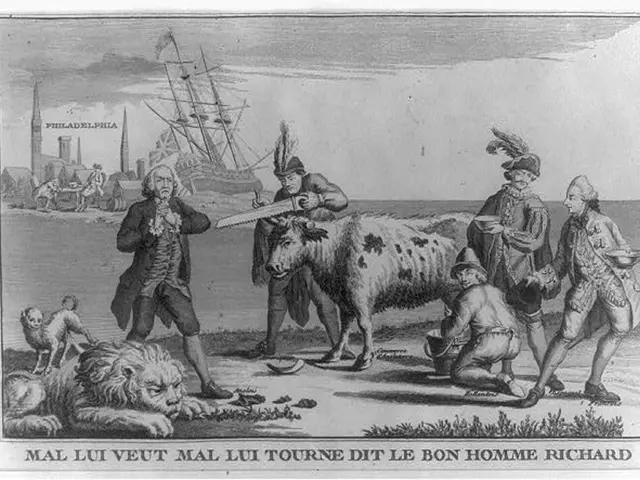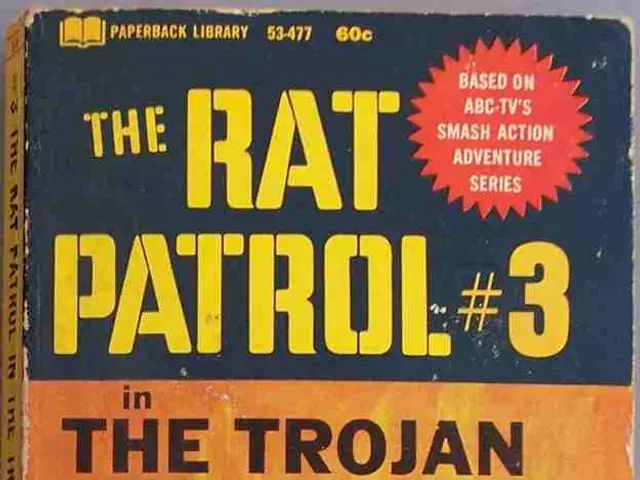Georgia's Parliamentary Elections 2024: Decision Time Approaches
In the run-up to Georgia's parliamentary elections on October 26, a billboard in Tbilisi showcases an image of a bombed-out Ukrainian church beside a pristine Georgian church, bearing the message, "No to War, Choose Peace!" Such visuals are ubiquitous throughout Georgian cities, as the Georgian Dream party, in charge of the political advertisements, warns that voting for any other party could lead Georgia into conflict.
This election campaign tactic elicited strong reactions from Georgians. Civil rights activist Giorgi Kikonishvili and popular journalist Merab Metreveli criticized the posters as exploitative and amoral, respectively. The Ukrainian government also voiced its disapproval, decrying the use of Ukraine's wartime suffering for Georgian political purposes.
Political parties opposing Georgian Dream argue that the fear-mongering approach is designed to divert voters' attention from Georgia's critical issues, such as democratic backsliding, growing detachment from the West, and the country's richest man, Bidzina Ivanishvili, effectively capturing the state.
Despite the outrage, the controversial ads resonate with some voters. Neli, a 60-year-old florist in Tbilisi, admitted, "I won't vote for Georgian Dream because I don't like them, but I'll still vote for them as peace is my priority for my country, my children, and my grandchildren." Such votes underscore Georgian Dream's success in leveraging Georgians' hope for peace to its advantage.
Political landscape in Georgia has altered dramatically under Ivanishvili's influence. Critics claim that all government institutions cater to Ivanishvili's personal interests, contradicting Georgia's longstanding goals of democratization and Western integration. The adoption of restrictive laws, intimidation of civil society, belligerent rhetoric toward the West, and threats against opposition parties have severely hampered Georgia's progress toward EU membership. Relations with the United States—once Georgia's most supportive ally—are hanging by a thread.
The opposition parties claim that the elections represent a critical and possibly last opportunity to reverse Georgia's slide toward autocracy and international isolation. They also warn of the impending geopolitical shift towards Vladimir Putin's Russia. Ana Natsvlishvili, a member of the opposition party Lelo, asserted that the Georgian government has become a threat comparable to the one Russia poses to the democratic world.
Georgian Dream denies all accusations. The party contends that Georgia will still join the EU on its terms, echoing the campaign slogan, "To Europe with Dignity." However, Georgia's behavior, characterized by homophobic laws, pro-Russia rhetoric, public disputes with EU ambassadors, attacks on democracy watchdogs, and demands to accept Georgia's unconventional oligarchic rule, make it incompatible with EU membership.
Ivanishvili's role as a driving force behind Georgian Dream remains contentious. His beliefs regarding foreign interference in his financial issues, particularly in the United States, have raised concerns about his commitment to Georgia's Western partnerships. Recently, Ivanishvili accused Western actors of imposing polarization on Georgia and of being involved in his legal battles overseas. His claims, however, lack concrete evidence and have been met with skepticism by critics.
Georgia's democratic, liberal, and pro-EU forces have united within various opposition groups intent on wresting a legislative majority from Georgian Dream. Salome Zourabichvili, Georgia's maverick and ardently pro-European president, has emerged as a key figure in this anti-Ivanishvili movement. While not officially participating in the race, Zourabichvili has been instrumental in forging unity among the opposition parties to effectively challenge Georgian Dream and steer Georgia back toward EU integration.
The magnitude of the opposition's support was evident in a large pro-EU demonstration held on October 20 in Tbilisi. However, the outcome of the election remains uncertain. Although Georgian Dream possesses a dedicated voter base and significant sway over public sector employees, the opposition parties could potentially collaborate and deny Georgian Dream a parliamentary majority.
Another uncertainty looming over the elections is the question of election fairness. Fears of vote manipulation and a reluctance to accept the results have sparked concerns. With five days remaining until the vote, Georgia seems on the brink of a momentous political shift that will have far-reaching implications for its relations with both the EU and Russia.
- The Ukrainian government's disapproval of the controversial ads in Georgia's election campaign led some to question the use of news from other countries' history of war and suffering for domestic political purposes, particularly in relation to policy-and-legislation and politics.
- As the elections approach, the debate surrounding Georgia's political landscape and its relationship with the West, including general-news such as democratic backsliding and growing detachment from the EU, has gained increased attention in both domestic and international news.








